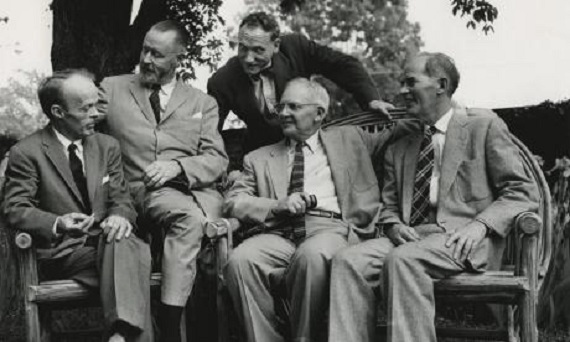
Devotion to this type of wisdom is the dominant characteristic of Southern society. Because of this tradition we continue to possess the most important element for the survival of our culture: hope. The tradition Davidson helped to foster continues with a remnant, but a solid remnant. The battle the South faces today is much larger than agrarianism; the American South of the 1990s is much more complex and less unique than the South of the 1920s. Nevertheless, the works of Donald Davidson provide a basis for a counterrevolution against the forces of nihilism rampant
throughout our region.
Mel Bradford has argued that no individual has exerted more influence upon the development of a profession of letters this century in the South than Donald Davidson. The poet, essayist, and social critic is well known to most literary scholars and historians of the South; however, Davidson’s critique of the Southern experience remains largely unappreciated.
Several years ago the author of this essay had the opportunity to spend a weekend with Andrew Lytle, one of the original Nashville Agrarians and a contributor to I’ll Take My Stand, at his home in Monteagle, Tennessee. In the course of our conversation, Lytle was asked to describe how one might better understand Donald Davidson. Mr. Lytle replied he too had often pondered this question and that he had come to a plausible conclusion concerning that dilemma a half century earlier while examining a family portrait of the Davidson clan.
More @ The Abbeville Institute

No comments:
Post a Comment